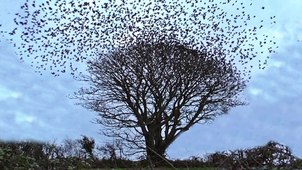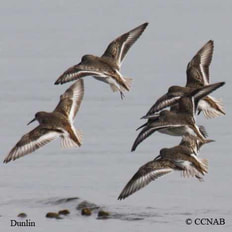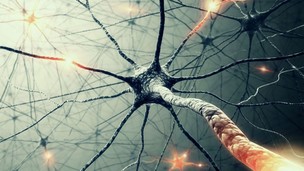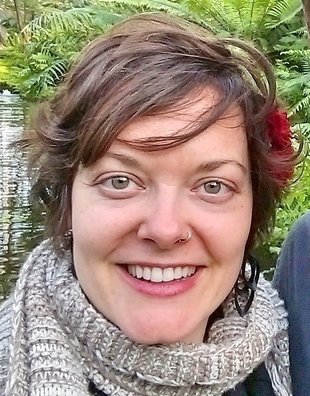 Ephesians 4:25-29 Have you ever watched a flock of crows leave a tree, suddenly, altogether, responding to some alarm or desire that sends them all straight up in the air and then, like a wave, they rush away, and then swirling together as the most talented dance troupe, until you see them come to rest as one in a nearby tree? Virginia Woolf watched rooks out her window, and noticed that they looked like “a vast net with thousands of black knots in it, cast up into the air; which, after a few moments sank slowly down upon the trees until every twig seemed to have a knot at the end of it. Then, suddenly, the net would be thrown into the air again in a wider circle this time, with the utmost clamour and vociferation, as though to be thrown into the air and settle slowly down upon the tree tops were a tremendously exciting experience.” Virginia Woolf captures with impish eloquence a scene that has captivated most of us, when we’re blessed and astounded to be walking under or driving past the tree from which hundreds of birds suddenly emerge. Bird flocks have the coolest names: a flutter of sparrows, or a murmuration of starlings, or a chime of wrens, or a squabble of gulls. We give bird flocks these evocative names because their collective identity is as important as their individual identity. Birds in groups need their own names. What Virginia Woolf saw was one vast net with thousands of black knots in it – one net, not thousands of birds. We see the same group behavior in a school of fish, or more specifically, a fleet of bass, a battery of barracudas, and a company of angel fish. A school of fish moves as one creature, swirling around coral, darting away from a shark, diving into dinner. Colonies of ants and swarms of bees are so skilled at collective identity and group consciousness that they give us hope for our own societies. Social scientists study ants and bees looking for tips that we humans can use to give our own families and cities and countries more harmony and shared vision.  We’re learning from other species too. Biologists see that flocks of birds and schools of fish have quicker reaction time together than apart. Dunlin, birds from the sandpiper family, fly together in a fling. Ornithologists filmed a fling of dunlin flying in Puget Sound and studied the videos. They even shot arrows alongside the fling, the flock, to get it to change direction. And they found that dunlin flying together changed direction 3 times as quickly as a solo dunlin can.[1] Does that make sense? Ornithologists get these bird flights on video, slow them down, and figure out that as a flock of dunlin swirls through the sky, when an obstacle appears in the flock’s path, each bird reacts, changing direction, in 1 70th of a second. When ornithologists watch birds flying alone, it takes them 3 times as long to change direction. In the flock only a few birds see the obstacle, the rest simply follow the lead of the flock. They’re not only following the birds right next to them, researchers contend, because the flock wouldn’t change direction so quickly if each bird had to react only after seeing the birds next to them. Move. Some collective unconscious, or group intelligence, or something we really don’t understand, gives birds more ability together than they have apart. At least in U.S. culture, humans tend to assume we can be more agile on our own than together. If we were facing an obstacle course within a flock of birds or school of fish we’d likely worry about the slowpokes and the dawdlers and the inevitable arguments over which way to turn. We often think of one another as burdens more than blessings. At least when we’re trying to get somewhere, we want independence and autonomy. But dunlin think and move three times as fast when they’re traveling as a flock. What invisible intelligence, what surprising skills, what bonus blessings do we have when we’re moving through life together? Paul writes to the Ephesians that we are members of one another. We can explore that spiritually in a minute, but it’s true physically, too. Just like starlings and bees and seagulls, we truly do tune in to one another when we’re together. Think about yawning – we really do pass yawns to one another. In fact, perceptive people catch even more yawns because they read others well.[2] We are members of one another through our yawns. Our heart rates rise and fall based on the people we’re with. It’s called entrainment. One study demonstrating this phenomenon was with the Mormon Tabernacle Choir. Each person got a heart monitor and a pattern emerged. As they sang together their heart rates fell into the same rhythm. And all of the singers’ heart rates changed together as the tempo of their songs changed.[3] We are members of one another through our heart rates.  Mirror neurons are the sexiest thing in neuroscience right now. We have no idea just how much mirror neurons shape us, but they seem to impact us from birth – some scientists believe mirror neurons are why we imitate our parents’ facial expressions as infants.[4] Basically, if I watch you drink a cup of tea, the neurons in the tea-drinking part of my brain start firing as if I was drinking tea. Mirror neurons enable us to imitate each other, to empathize with each other, to understand one another. Actually, mirror neurons don’t simply enable us to do this – we’re designed to imitate, empathize and understand one another and mirror neurons are key. We are members of one another through our neurons. Even before anyone studied mirror neurons or dunlin flock reaction time, we knew we belonged to one another physically. We read at least 12 times in the gospels about Jesus being “moved with compassion” or sometimes mistranslated “moved with pity.” The Greek word is splangchnizomai (splangkh-nid'-zom-ahee) and means feeling in the gut, being moved in the bowels. The gospels writers tell us at least 12 times that Jesus felt people’s passion and pain in his gut. We are members of one another physically and spiritually. We feel one another’s emotions whether or not we want to. We’re feeling each other’s pain as we give thanks that our homes aren’t full of water, that we still have a roof, that we’re not living in shelters. As we pray for people in Florida, Texas, the Caribbean, what connects us? If you have loved ones in Florida now, you’re connected. You’re feeling their worry or their relief in your gut because it is yours. If you don’t personally know anyone who is impacted, maybe your empathy comes from recalling when you were in danger from a storm. If you’re consuming dramatic news coverage your heart rate and empathy have both increased. You’ve had fear or heaviness in your own gut. Thanks to mirror neurons and heart rate entrainment and splangchnizomai (splangkh-nid'-zom-ahee), all of us can be members of one another even far away. The way we belong to one another can also be dangerous – angry crowds marching with torches. We know about mob psychology convincing people to do hateful or outrageous things they would never have done alone. That’s why Paul writes to the Ephesians “let all of us speak the truth to our neighbors, for we are members of one another. Be angry but do not sin; do not let the sun go down on your anger….Let no evil talk come out of your mouths, but only what is useful for building up, as there is need, so that your words may give grace to those who hear.” We are members of one another. We change each other’s heart rates, we fire each other’s neurons, we get each other to yawn, we move each other’s bowels! Paul tells the church that we must speak only what is useful for building up, so that our words give grace to one another. When we realize how much power we have over one another, why would we be careless? We’re aware right now, with constant news and social media we’re more aware than ever of all the hurricanes and hunger and unemployment and drug abuse and threats to immigrants and we’re tuned in to one another. But we forget. We get caught up in our own world, and forget how much we impact the people around us. Thich Nhat Hanh says it this way We do not have a stem linking us to our mother anymore, but when we were in her womb we had a very long stem, an umbilical cord. The oxygen and the nourishment we needed came to us through that stem. Unfortunately, on the day we call our birthday, it was cut and we received the illusion that we are independent. That is a mistake. We continue to rely on our mother for a very long time, and we have several other mothers as well. The Earth is our mother. We have a great many stems linking us to our mother Earth. There is a stem linking us with the cloud[s]. If there is no cloud, there is no water for us to drink. We are made of at least seventy percent water; the stem between the cloud and us is really there. This is also the case with the river, the forest, the logger, and the farmer. There are hundreds of thousands of stems linking us to everything in the cosmos, and therefore we can be. Do you see the link between you and me? If you are not there, I am not here; that is certain. If you do not see it yet, look more deeply and I am sure you will see. This is not philosophy. You really have to see. Even as our culture seduces us to individualism, we return to the wisdom of Thich Nhat Hanh, and now turn back to Paul’s wisdom. You’ve heard one phrase from this passage countless times: don’t let the sun go down on your anger. Abundantly wise. But as familiar as that phrase is, there’s a startling phrase coming next: Thieves must give up stealing; rather let them labor and work honestly with their own hands, so as to have something to share with the needy. He doesn’t say thieves should repent and be better people for their own sake or even for the glory of God. He says that our neighbors should inspire us to do our best. Not for competition, but for sharing, The people around us should inspire the best from us because we will impact them whether or not we want to. Your heart, your brain, your gut, your words, your deeds are spreading through this room – what do you want to give us with your huge and holy power? With the huge and holy power we have as we belong to one another, we’re collecting money for disaster response, we’re praying for all who have been affected by hurricanes and torrential rains and chemical plant explosions. And as the death toll rose to 60 in Texas last week, the death toll from flooding in India reached 1300. And it will grow, from waterborne diseases and the extra mosquitos spreading dengue fever and malaria and so many crops lost. The flooding and cyclones in India, Bangladesh, Nepal and beyond barely made it into our news or our hearts. We were focused on Harvey and Houston. And even Harvey and Houston are now pushed aside for Irma and Florida. We are members of one another, but how many people can we care about at once? In 2001 an earthquake killed nearly 20,000 people in India. I might not have paid much attention, though the epicenter was Gujarat State, where my family lived when I was 5 years old. But what really captured my attention, my heart, my gut, was my dad. He was working with the Church of the Brethren in India and in that part of the country when the earthquake hit. This was 2001 and we didn’t have smartphones or even much online news. We didn’t find out until the next day that my dad was okay, he’d been in a car and at first they didn’t even realize how bad the earthquake was, didn’t realize we’d be so worried, of course had no idea we’d been hearing that as many as 20,000 people could be dead. Buildings fell on many people, that’s how most people die in earthquakes, nearly 20,000 died in that earthquake in northern India in 2001. And while I was waiting to hear if my dad was okay I was checking the news and reading the death toll estimates and I was praying he wasn’t dead and suddenly I realized that if I got my prayer, my wish, my hope, and my dad was alive, then someone else was dead. Because as many as 20,000 people were dead and if my dad was alive, someone else was dead. So I felt guilty. But mostly I was afraid and wanted my dad to be okay. We are members of one another, and of course we are members most of the people we love and know and see the most. Remember those dunlin, the birds that respond to movement 3 times faster when flying as a flock than when they fly alone? Starlings, who are called a mumuration when they are together as a flock, also seem to gain mental speed when they fly together. Starlings’ remarkable ability to fly so fast and change direction so quickly without running into each other has something to do with just how they are members of one another. Each bird, researchers say, watches the seven – perhaps eight – birds right around them, following their every move, and by watching just those seven – or eight – birds, the starlings can be more efficient and agile than researchers would have thought they were capable of being.[5] We can be like starlings, focused only on the people immediately around us, even though we’re part of a community so much bigger. A flock of starlings is a mumuration, a flock of dunlin a fling, a flock of people? Sometimes a church, sometimes a town, someday the Kingdom of God. One gift, perhaps the greatest gift, of all these disasters is that we remember that we belong to each other, that we impact each other on this planet. We impact India and Bangladesh as our carbon emissions increase the severity of their storms. We impact all the living creatures in Texas as the plastic and fuel we use drives the industries that were already poisoning that region, and winds and floods just sped up the process. We impact Florida and the Caribbean and beyond with the emergency cleanup buckets we’re preparing all month. With our prayers, with calls to legislators, with donations. We are members of one another, not just the people in our house, our town, our tribe. Alonso Guillen and his friends were rescuing people stuck in their flooded Houston homes when their boat capsized and he drowned. Alonso was born in the borderlands of Mexico/Texas and allowed to live in Texas through the DACA program, which meant he could work and live in the US temporarily, but did not put him on any path to citizenship. Citizenship, membership, belonging to one another. How could someone belong to his community any more sincerely than to give his life to help his neighbors? I did nothing to earn my US citizenship, but I know how much privilege it gives me and I want to use that privilege to make a difference. Disasters remind us we are members of one another, we feel unity in the midst of tragedy. But it doesn’t last, because this is unity rooted in drama, not unity rooted in the stark truth that we impact each other and a sincere desire to impact each other for good. “This isn’t a time for politics” or “this isn’t a time to talk about climate change or deregulation” some people say. Professor Scott Knowles says that we “think of a disaster as an apolitical event and we should rally around our community and not talk about politics. But disasters show us where people live, why they live there and what kind of dangers they may face because of where they live, and it’s deeply political. Disasters reveal to us whether or not we've invested enough in our civil society. Do we have the kind of health care that we need? Do we have the kind of environmental protection that we need? And because disasters are so complex, it's all…revealed at once.”[6] Stone Church seeks to be a Christ-centered community in which all are spiritually nourished. How can we root our community in the knowledge that we are members of one another, not only in disaster or tragedy, not only in the anticipation of meeting pastoral candidates next week. How can we nourish one another in mundane times? How can we send our roots deeper into holy ground? As we collect supplies for emergency cleanup buckets we can share stories about times when we have been rescued. As we give money for disaster relief we can audit how our purchases contribute to severe weather. As we call our legislators we can confess how hard it is to do the right thing, or even know what the right thing might be, in a world as complex and interconnected as ours. We will wear out, we will be discouraged, so we must nourish this community’s roots. As we turn to one another and belong to one another, we find we have more compassion to share with people near and far. We can be each other’s seven starlings, and find purpose and direction together to be part of the wider world. As we nourish each other well, physically, emotionally, spiritually, we have more to share. Amen. [1]http://www.nytimes.com/1987/11/24/science/new-appreciation-of-the-complexity-in-a-flock-of-birds.html?pagewanted=all&mcubz=3 [2] http://journals.sagepub.com/doi/10.1177/2041669517726797 [3] http://www.npr.org/sections/health-shots/2013/07/09/200390454/when-choirs-sing-many-hearts-beat-as-one [4] http://www.sciencedirect.com/science/article/pii/S1364661304002438 [5] http://www.npr.org/sections/13.7/2017/01/04/506400719/video-swooping-starlings-in-murmuration [6] http://www.wnyc.org/story/breaking-news-consumers-handbook-american-storm-edition?tab=transcript
1 Comment
6/29/2019 03:44:08 am
Before anything else, I just want to mention how beautiful this one is! It seems like you have written this with so much emotion and I really admire you for even trying to give us the article that we deserve. There are things that we should share to other people, and we should do it with all our heart. At the same time, it's not really hard to sympathize with other people,, isn't it? That's why we should do it more often! Thank you for this article.
Reply
Leave a Reply. |
Archives
January 2022
|

 RSS Feed
RSS Feed